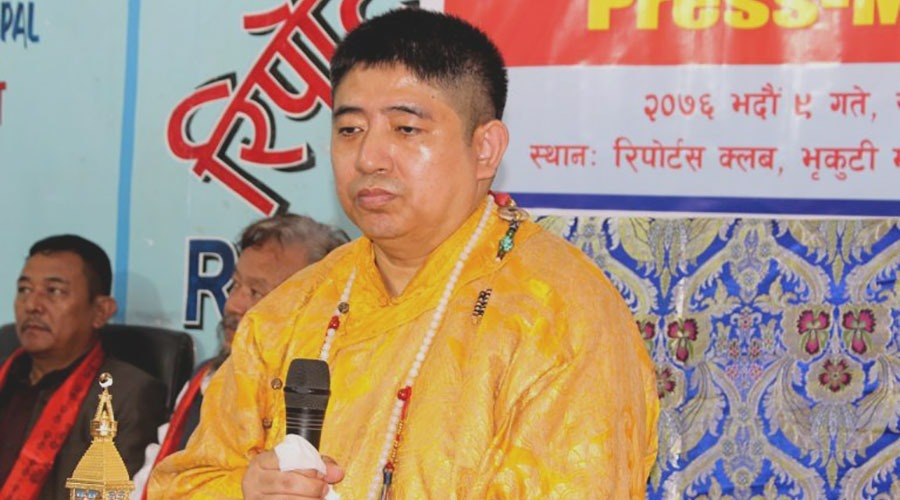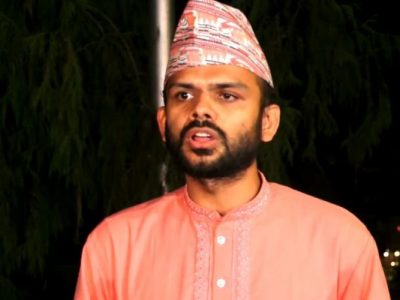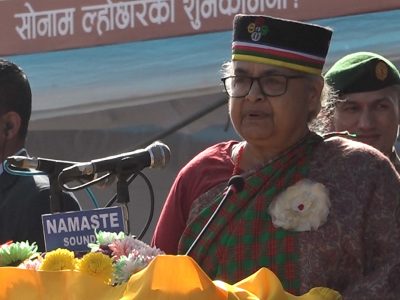Todke Baba: The Simple Life of a Himalayan Jogi
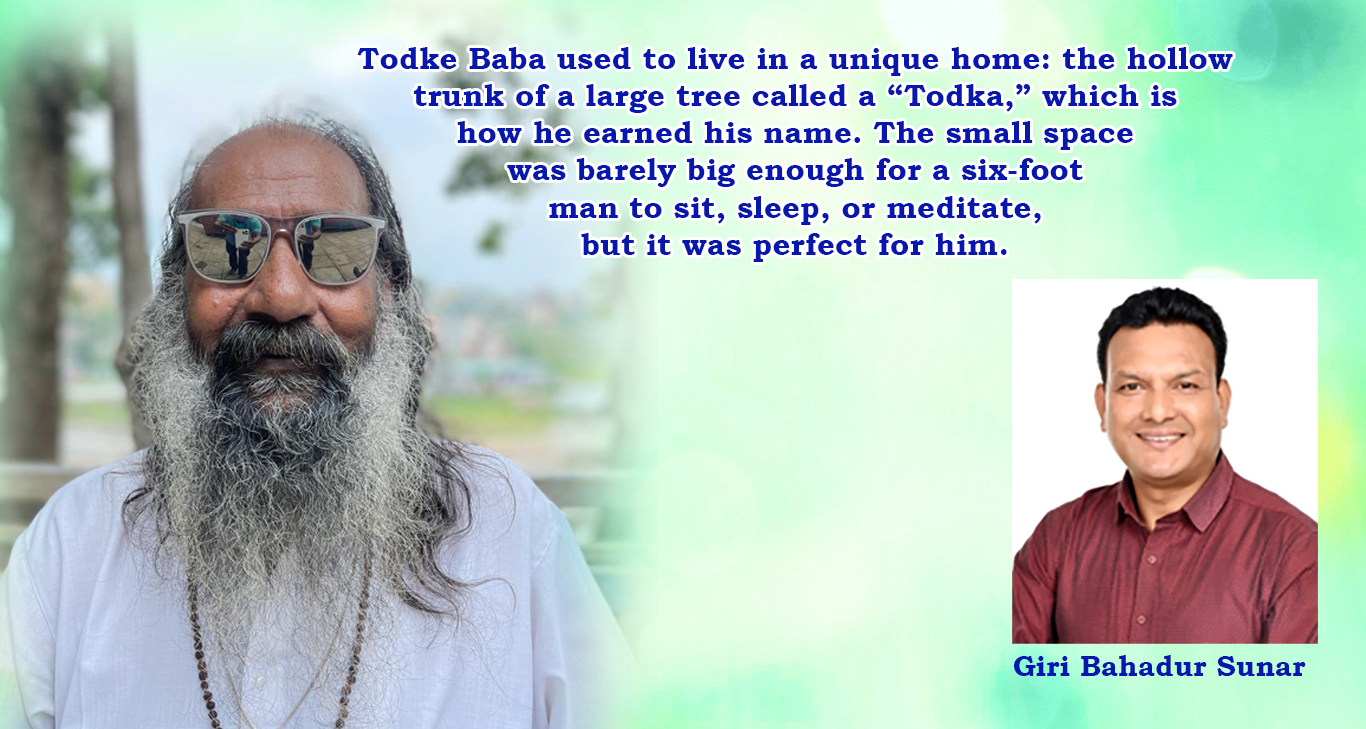
About twenty years ago, I met Todke Baba at the Shivapuri Ashram in Dhurabsthali, Nepal, a peaceful oasis surrounded by tall trees and the soothing sounds of nature, just a short distance from the hustle of Tribhuvan International Airport. He was a tall, quiet man, standing more than six feet tall, dressed in simple white clothes that seemed to reflect his calm and honest nature. His presence was magnetic, not because he sought attention, but because he didn’t. Todke Baba wasn’t part of the ashram’s formal structure; he was simply a follower of Shivapuri Baba, a saint known for his humble and simple life. When he spoke, his words carried a gentle mix of Nepali and a Hindi accent, clear and straightforward, with no hint of pretense. He didn’t talk much, but when he did, his sincerity made you listen.
I was working a regular office job at the time, caught up in the routine of city life, but I was curious about meditation and finding a deeper purpose. Todke Baba didn’t act like a guru or give grand lectures. Instead, he shared simple thoughts about kindness, honesty, and staying true to yourself. That first meeting felt like a quiet spark, igniting a desire to learn more from this remarkable man. His genuine nature and unassuming wisdom made me want to return, to sit with him and soak in the calm he carried so effortlessly.
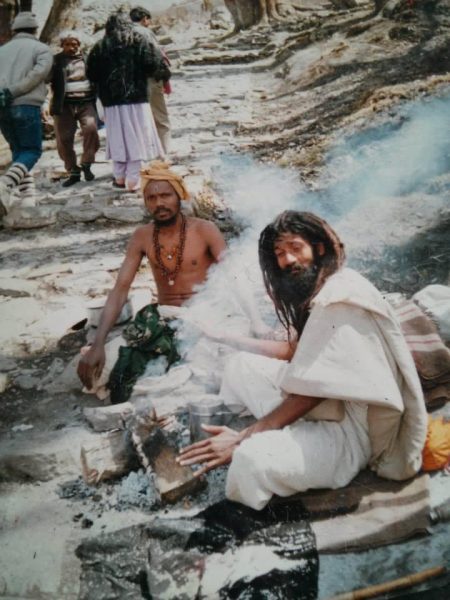
After meeting him, for five years, I made it a habit to visit Todke Baba nearly every Friday at Bagdwar, and Shivapuri Peak, joined by my friend Swami Kumar. After a long week at work, I’d leave Kathmandu’s noise behind and trek up the forested hill, surrounded by fresh air, chirping birds, and towering trees. The journey was like a reset, a chance to escape the chaos of daily life and breathe freely. I’d spend the weekend with Todke Baba, returning to the city on Sunday mornings to resume my office job. Those trips became a cherished part of my life, a time to slow down and reconnect with something meaningful.
Todke Baba used to lived in a unique home: the hollow trunk of a large tree called a “Todka,” which is how he earned his name. The small space was barely big enough for a six-foot man to sit, sleep, or meditate, but it was perfect for him. It symbolized his choice to live simply, relying on nature and faith rather than material comforts. Tragically, vandals later set fire to the Todka, but we rallied to protect it by adding a small roof. The tree itself is gone now, but the Todka remains on the path to Shivapuri Peak, a quiet testament to his life there.
During my visits, I’d find him sitting calmly, often tending a small fire for tea or a simple meal of rice, lentils, or vegetables, and pickles. He offered food freely to everyone who came, never asking for payment. As a gesture of gratitude, we brought fruits or vegetables for meals and sometimes gave him small amounts of money. I also helped chop dry wood for his fire and assisted with cooking. Those weekends were like a retreat, a chance to step away from my busy life, reflect, and feel a deeper connection to the world around me.
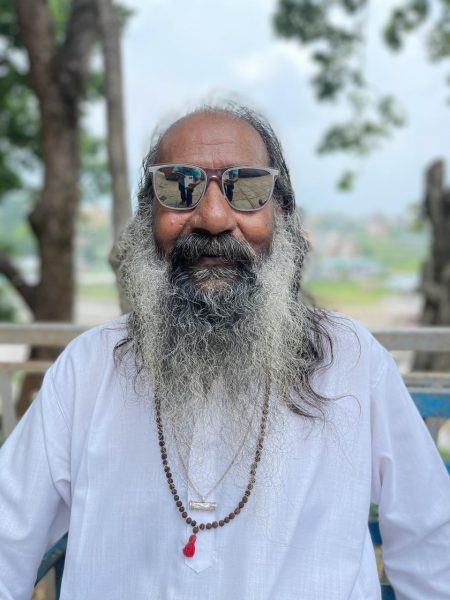
One day, Todke Baba suffered a heart attack, and I was fortunate to be there to help. I assisted in carefully bringing him down from the rugged paths of Bagdwar to the Teaching Hospital in Maharajgunj, Kathmandu. The journey was challenging, but I stayed by his side, supporting him through his treatment and recovery. Myself and Kumar Swami did everything, we could arranging transport, ensuring he was comfortable, and offering whatever help he needed. Even now, I continue to serve him in any way I can, visiting and assisting whenever possible. This experience deepened our bond, teaching me the profound importance of being there for someone in their time of need. It showed me that kindness isn’t just about small gestures but also about stepping up when it matters most.
A Life Inspired by Shivapuri Baba
Todke Baba was born in a small village in Haryana, India, where life was simple but full of community. As a young man, he felt a pull toward a more meaningful existence, and after coming to Nepal, he was inspired by Shivapuri Baba, a saint known for his humble and pious ways. The essence of Baba’s teaching is what he calls “Right Life.” It has two parts; Discrimination and Devotion. He says that a seeker practicing ‘Right Life’ needs to have physical, moral and spiritual discipline. Like Shivapuri Baba, Todke Baba wore plain white clothes that reflected his inner simplicity and carried himself with a quiet strength that put people at ease. He chose to live near Bagdwar, a sacred spot on Shivapuri Peak where a gentle Bagmati river originated, creating a peaceful setting for his reflective life. The area felt like it was made for him, a quiet corner of the world where he could focus on his inner journey.
He rarely spoke about his past, and I learned not to press him for details. He preferred to live in the moment, sharing whatever he had food, tea, or time with those around him. Through our conversations, I understood that becoming a Jogi, someone dedicated to a simple, spiritual life, was his true calling. He wanted to live free from the chase for material things, focusing instead on kindness, inner peace, and helping others. His life was a living example of these values, showing that you don’t need much to live meaningfully.
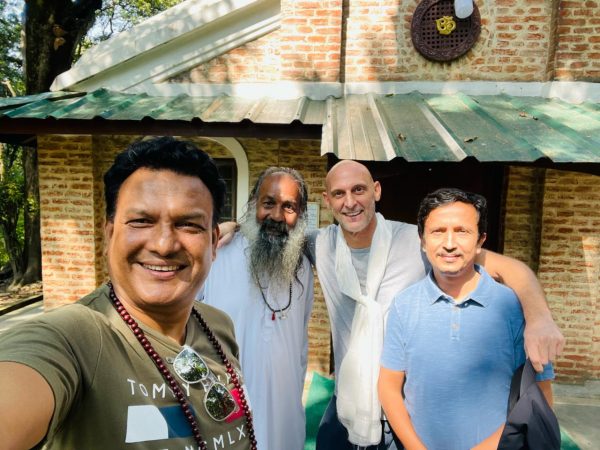
Todke Baba’s generosity was one of his most inspiring qualities. He welcomed everyone who visited Bagdwar and Shivapuri Peak, strangers, children, or regular visitors like me with the same open heart. If you were hungry, he’d offer tea, biscuite, rice, lentils, or whatever simple food he had as per visitors need. I once watched him serve tea to a young boy and a foreign man who had just met him, giving them both the same warmth and attention. When I asked him why he treated everyone so equally, he smiled and said, “All people are equal. Why treat them differently?” His kindness didn’t care about status, background, or familiarity. He showed me that true compassion is about giving without expecting anything in return, a lesson that has stayed with me ever since.
A Simple Way to Meditate
Todke Baba’s approach to meditation was as simple as his lifestyle. When I asked him how to meditate, he brushed off complicated techniques. “Just sit, relax, and watch your breath,” he said. To him, meditation wasn’t about fancy poses or rituals; it was about looking inside yourself, noticing your thoughts and feelings without getting caught up in them. Meditation is not gymnatic and martial art stuff to show others it is seeing oneself. He was wary of gurus who made spirituality seem complex or showy. “Books and teachers can guide you,” he told me, “but only you can find your own truth.” His advice was practical and grounded: know yourself, stay kind, and don’t overcomplicate things. “Speak what you earn from your practical life, not things learn from the book”. This simple approach made meditation feel accessible, something anyone could do without needing special skills or knowledge.
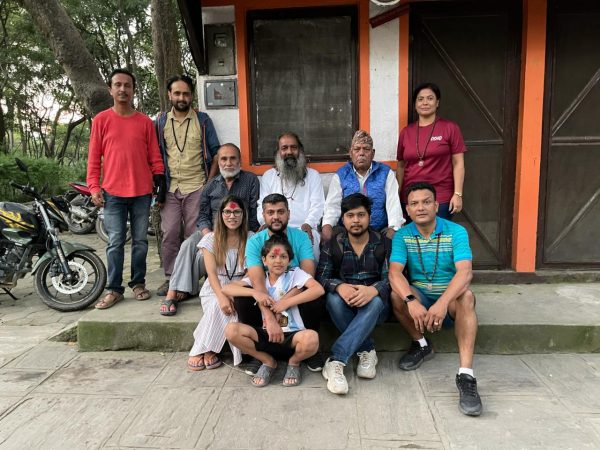
Todke Baba don’t like the people who turned meditation into a business, selling blessings or chasing fame. He wasn’t a guru and didn’t want followers. Many visitors, specially youth assumed he smoked ganja, perhaps because of his Jogi lifestyle, but he didn’t. He was a regular cigarette smoker, nothing more, often seen with a cigarette while sitting by his fire. He enjoyed small pleasures, like listening to old Hindi songs or, in later years, watching short video reels on a mobile phone someone gave him. But his true focus was on living with purpose, serving others, sharing conversations, and tending his fire from morning to evening like meditation. His life was his message: live simply, be kind, fill with gratitude, and stay away from the world’s noise.
A Pure Heart’s First Love
Todke Baba once shared a touching story from his youth in Haryana. At fourteen, he fell for a girl in his village whose laughter rang like temple bells as she played marbles with other children. Her joy and radiant spirit drew everyone to her, but when their eyes met, there was a quiet, unspoken connection. Their love was pure, never about physical desire, just a deep bond between young hearts. Years later, she returned to the village with her husband, and they sought Todke Baba’s blessing, now a Jogi. Her memory stayed with him, a sacred reminder of the purity of love and a spark of something eternal that connects all hearts. This story showed me how even simple, childhood moments can carry profound meaning throughout a lifetime.
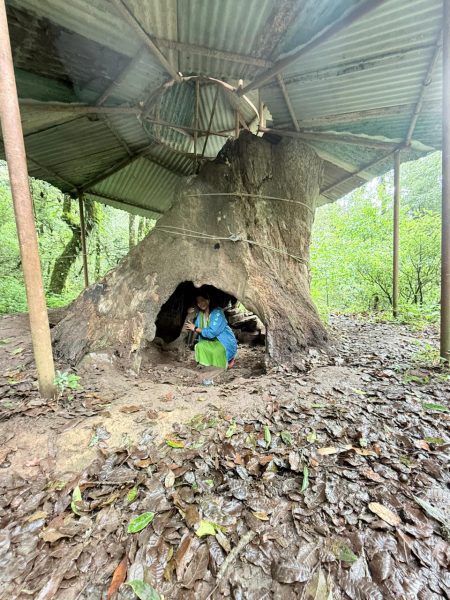
The Temple of Body and Soul
Todke Baba told me about a friend in his village who was passionate about physical strength. With no gym available, the friend created a workout space in his yard using iron rods, weights, and homemade dumbbells. Todke Baba, tall and lean, joined him, inspired by his dedication. They lifted weights to honor the body, not for vanity, but as a sacred vessel that carries the soul. Pictures of legendary strongmen hung on the walls, guiding their efforts to build stronger arms, chests, and spirits. Yet, Todke Baba felt a deeper calling to look beyond the physical and seek the inner essence that gives life meaning. This balance of caring for the body while pursuing spiritual growth became a foundation for his life’s path.
The Divine Song of the Tumbi
In his village, mornings came alive with the soulful sound of the tumbi, a simple stringed instrument played by wandering Jogis who went door to door. Their devotional songs, filled with love for the divine, stirred Todke Baba’s young heart, planting a seed of spiritual longing. One morning, the Jogis offered him a chillum filled with ganja. Hesitant but curious, he took a few puffs, and for a few hours, the world around him faded as his soul felt free, touching something sacred. Though he’d smoked bidis as a boy, copying the villagers, this was different, a moment that opened his heart to a deeper truth. The tumbi’s melody stayed with him, becoming a guiding light for his life as a Jogi.
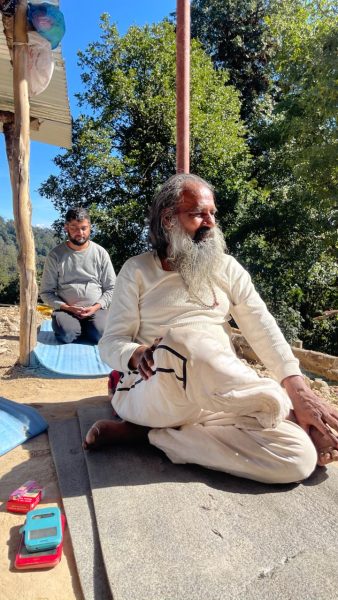
The Awakening of a Jogi’s Soul
The desire to become a Jogi grew stronger each day, like a fire burning in his heart. But doubts lingered: How would he find food, clothing, or shelter? He saw a boy in his village try the Aghori path, donning black robes and heading to the jungle with bold resolve, only to return a week later, defeated. Todke Baba knew his path had to be different. A true Jogi, he believed, couldn’t live with one foot in the spiritual world and one in the ordinary. His heart yearned for a life fully devoted to inner peace, where every breath was a step toward a deeper truth.
Guided by an inner light stronger than his fears, Todke Baba left his village for Himachal Pradesh, where the mountains seemed to touch the sky. He found refuge in an ashram, a simple place of stone and spirit, where he swept floors, tended gardens, and served humbly in exchange for food and shelter. The ashram offered to make him a permanent member, promising lifelong support, but he felt uneasy. He was born free, not meant to be tied to any institution. His father, a diligent government worker, raised ten children, six brothers and four sisters with Todke Baba as the eldest. He loved his family and visited them from time to time, sharing stories and laughter, but the mountains’ silence called him back, louder than any promise of a settled life.
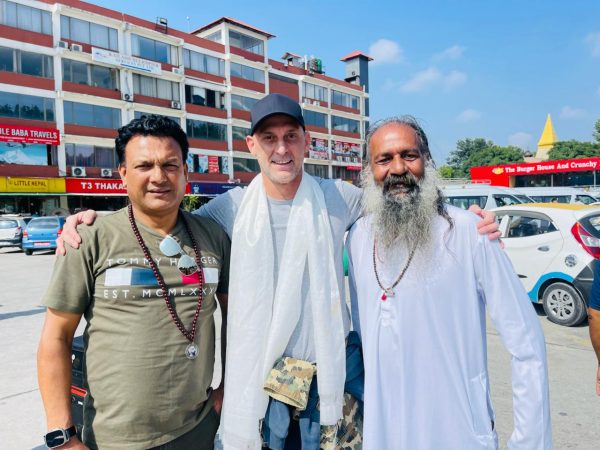
His family, especially his brothers-in-law, urged him to marry and build a stable life rooted in tradition. His mother, her eyes full of love, opened a small box of savings and offered him two or three hundred rupees, a modest sum but heavy with her hopes for him to start anew. Instead, Todke Baba used that money to fully embrace the Jogi life, trusting that faith would provide for his needs. The tumbi’s song, once a distant melody, now pulsed within him, guiding his steps. He found freedom in letting go, living each moment with purpose and gratitude, as if every breath was a quiet prayer.
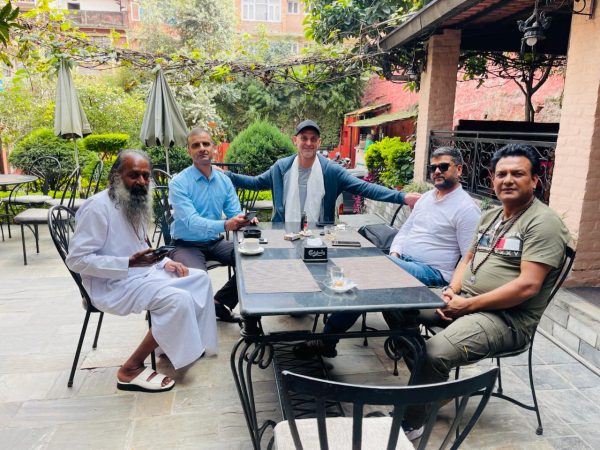
A Lasting Lesson
My time with Todke Baba changed how I see the world. His simple life, white clothes, shared meals, and open-hearted kindness showed me that spirituality doesn’t need to be complex or dramatic. It’s in the small, everyday acts: sharing a meal, listening to someone’s troubles with patience, supporting the needy one or sitting quietly with your thoughts. He taught me to treat everyone equally, to look within myself for answers, and to live with purpose, no matter how simple it seems. His words, “Love and serve others. That’s enough,” echo in my heart. In a world that often feels busy, divided, and overwhelming, Todke Baba’s wisdom remains a gentle guide, reminding me to stay kind, live simply, and see the good in everyone. His life, filled with gratitude and quiet strength, continues to inspire me to find meaning in the everyday and to carry his lessons of love and service into my own life.
The author is a spiritual seeker and a PhD. scholar, can be reached at: [email protected]
Facebook Comment
latest Video
Trending News
- This Week
- This Month





